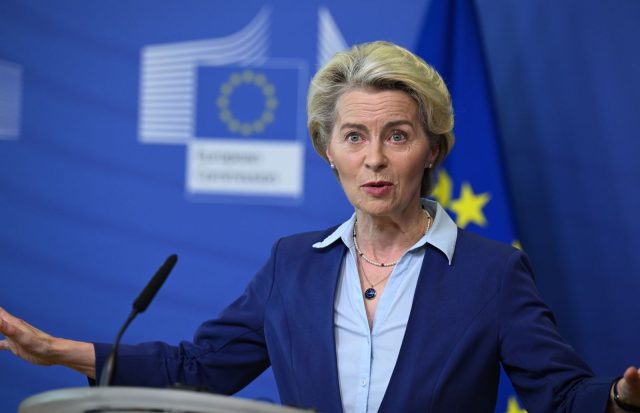
A sweeping agreement abolishes tariffs, secures raw materials, and strengthens Europe’s green ambitions
The European Union and Indonesia have reached a landmark free trade agreement that promises to reshape economic and strategic ties between Brussels and Southeast Asia. Described by officials as an “anti-Trump” pact, the deal abolishes 98.5 percent of bilateral tariffs and opens critical channels of cooperation in electric vehicles, renewable energy, and digital commerce. More than a trade accord, it signals Europe’s determination to counter protectionist trends and secure the resources needed for its green and digital transitions.
Announced in Brussels after years of negotiation, the EU–Indonesia Comprehensive Economic Partnership Agreement delivers sweeping tariff reductions that will save European exporters an estimated €600 million annually. Under the deal, Indonesian duties on European cars will be cut by 50 percent, tariffs of up to 15 percent on machinery and pharmaceutical products will fall sharply, and chemical tariffs will drop by 25 percent. Overall, virtually all Indonesian duties on EU goods will be removed, creating one of the most open trade relationships in the region.
A Strategic Response to Global Tensions
European leaders framed the pact as a direct response to the protectionist policies of former U.S. president Donald Trump, whose trade wars and tariff hikes disrupted global supply chains and challenged multilateral trade norms. “In today’s unpredictable global economy, trade relations are not just economic tools, but strategic resources,” said Maros Sefcovic, the European Commission’s vice president and chief negotiator. His remark was widely interpreted as a message to Washington as well as to skeptical members of the European Parliament, which continues to debate other trade agreements such as the contested EU–Mercosur pact.
By striking a far-reaching agreement with Indonesia—Southeast Asia’s largest economy and a key supplier of critical minerals—the EU aims to diversify its trade partners and reduce dependence on more volatile markets. The move also strengthens Europe’s geopolitical footprint in the Indo-Pacific, where competition among global powers is intensifying.
Green Deal Gains: Electric Cars and Raw Materials
Central to the agreement is cooperation on clean technologies. Indonesia is one of the world’s richest sources of nickel and cobalt, two minerals essential for manufacturing batteries used in electric vehicles and renewable energy storage. Gaining stable and predictable access to these materials is crucial for Europe’s Green Deal, which seeks to decarbonize transportation and expand renewable energy infrastructure.
The pact eliminates tariffs on environmentally friendly goods and sets new rules to encourage European investment in renewable energy and electric vehicle production. “Our agreement with Indonesia guarantees a stable and predictable supply of critical raw materials for Europe’s clean technology and steel industries,” European Commission President Ursula von der Leyen declared, calling the deal a cornerstone for Europe’s green industrial strategy.
In addition to energy and raw materials, the agreement includes provisions to foster cooperation in battery technology and electric mobility, creating opportunities for joint ventures and technology transfers. European automakers will benefit from easier market access, while Indonesian companies will gain opportunities to integrate into Europe’s fast-growing clean-tech supply chains.
Digital Commerce and Telecommunications
The EU–Indonesia deal also breaks new ground in digital trade. For the first time, Indonesia will allow 100 percent foreign ownership in telecommunications and IT services, opening lucrative opportunities for European investors. The agreement introduces a comprehensive package for digital trade facilitation, including electronic signatures and authentication, consumer protections, and safeguards for source code. Importantly, it bans customs duties on electronic transmissions such as software and digital media, a first for Indonesia and a major win for Europe’s tech sector.
These measures are designed to foster a secure and predictable online environment, enabling smoother cross-border e-commerce and strengthening Indonesia’s digital economy while giving European companies a competitive edge.
Agricultural Protections and Opportunities
Agriculture remains a sensitive area for both parties, but the agreement balances liberalization with protection of local interests. European exporters will enjoy duty-free access for key products such as dairy, meat, fruit, vegetables, and processed foods. At the same time, the EU secured strong protections for 221 geographic indications—including iconic products like Parmigiano Reggiano and Champagne—preventing imitation and safeguarding European culinary heritage.
Indonesia, for its part, retains limits on imports of certain sensitive agricultural goods, including rice, sugar, eggs, fresh bananas, and ethanol, while quotas will apply to garlic, mushrooms, sweet corn, cassava starch, and high-sugar products. This calibrated approach opens markets without undermining food security or local producers.
A New Chapter in EU Trade Policy
The EU–Indonesia agreement illustrates how Brussels is leveraging trade policy to achieve strategic objectives: promoting sustainable development, securing vital resources, and demonstrating global leadership in open markets. By linking tariff elimination with cooperation on green technologies and digital services, the EU is crafting trade deals that advance both economic and environmental goals.
As the world grapples with protectionism and geopolitical uncertainty, the pact with Indonesia stands as a bold statement of Europe’s commitment to free trade and its readiness to act strategically. For both partners, the deal marks the start of a new era—one that blends economic opportunity with the shared pursuit of a greener, more connected future.



 Subscribe
Subscribe